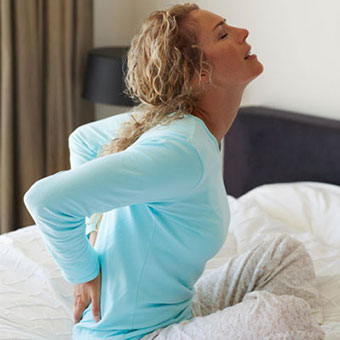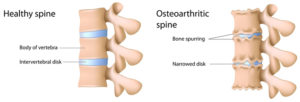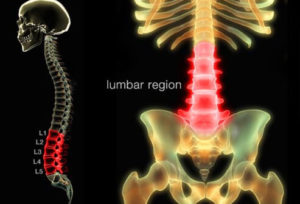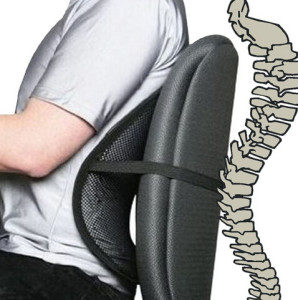Discussion of Common ENT Disorders & Allergies
The ears, nose, and throat play a crucial part in our daily routines. An unhealthy throat will lead to weight loss because you’ll find it hard to eat. Nasal problems, on the other hand, will result in conditions that will greatly affect day to day living. Lastly, ear problems will make it hard for you to get a grasp of what’s happening around ( for example, it’s easier to determine the distance of an oncoming car if you hear its engine).
Annoying as it is, life loves to joke around sometimes. That’s why you may experience sudden illnesses that happen in the ears, nose, and throat. The professional term for these is ENT Disorders. In this article, I’ll be explaining them in simple English.
Common Throat Disorders
Swallowing Difficulty (Dysphagia)
People who suffer from this disorder find it hard to ingest food no matter how big, wet, or savory it is. Dysphagia isn’t related to appetite loss. It’s because people who suffer from Dysphagia display a healthy appetite but find it hard to swallow.
Many things cause dysphagia. Examples of inherent factors are bad teeth, throat injuries, and food allergies. On the other hand, external factors that may cause dysphagia are drying of the throat, poor dental health, acid reflux, goiter, throat cancer, and stroke.
This throat disorder is very common among the elderly.
Those suffering from Dysphagia displays the following symptoms:
- gagging
- eating slowly
- inability to ingest dry foods
- getting choked by bits of food
Diagnosis for Dysphagia consists of tests and check-ups from the doctor. He might conduct allergy testing, and inspect the throat thoroughly to see signs of inflammation and pus.
Treatment for Dysphagia consists of changes in diet, medicines that relax the muscles of the throat, anti-allergy pills or shots, and therapies.
Hoarseness
I’m pretty sure that you’ve experienced this at least once after an argument with your mom or dad, a night of heavy crying, drinking with friends, or a fever.
Hoarseness pertains to the decreased volume and tonal quality of voice. Usually, this throat disorder gives you a permanent scratchy or raspy voice.
Simple and complex conditions might cause this. For example, you won’t have to worry about hoarseness if you voice change after singing, shouting, or talking hard.
However, be alert if the hoarseness is accompanied by unbearable pain and difficulties in swallowing. Sometimes, hoarseness indicates that you’re experiencing a serious throat-related condition.
Hoarseness will make you display these symptoms:
- scratchy throat when talking
- shortness of breath when taking
- a poorly modulated voice
- raspy voice quality
Doctors usually tell patients to rest their throats when experiencing hoarseness. However, medications might be used for those who get this from influenza and common colds.
Smokers who experience long term hoarseness have to visit doctors. It’s a sign of the early stages of throat cancer.
By the way, people in specific countries treat hoarseness by eating an uncooked egg yellow.
Sore Throat
Sore throat is a condition that affects various respiratory illnesses. Some of the health problems that it associates are tonsillitis, common colds, and flu.
Allergies, common colds, tonsillitis, and flu are some of the most common causes of sore throat. It eventually goes away after you have recuperated from these illnesses.
A sore throat might lead to hoarseness if left untreated. It’s because infection might occur on the throat lining, the larynx, the voice box, and other internal body parts near the throat.
These are the symptoms that a sore throat gives:
- Loss of appetite
- Drying of the lips
- Scratchy and painful throat
- Hoarseness
- Inflammation of the tonsils
- Occasional pain in the neck and jaw
Inspecting the throat is the most common way for a doctor to diagnose this. He might also ask you about how long is your throat sore, what did you eat or drink the last time, what is your lifestyle, etc.
Treatment for sore throat may range from doctor-prescribed meds, over-the-counter meds, and herbal teas.
Common Nose Disorders
Nosebleed
A nosebleed is a condition that results in the involuntary outward flow of blood in the nose. The rate of blood flow might range from very little to very problematic amounts. Nosebleed happens in any age group.
You can classify this disorder into two categories; anterior nosebleed and posterior nosebleed. Anterior nosebleed isn’t that serious. Extreme heat or cold causes it.
On the flip side, a posterior nosebleed is worrisome. It might cause bleeding on the nose that doesn’t stop at once. In the worse case, the blood might also exit on the throat. Head and facial traumas cause posterior bleeding.
For diagnosing nose bleed, the doctor might have to use radiographs, CBC if the cause is abnormalities in the blood, and partial thromboplastin time.
Sinus Disorders
A healthy sinus aids speech and the lubrication of the nose lining with mucus. But sometimes, specific conditions affect the sinus. As a result, it fails to work.
Sinus disorders might range from dryness, clogged feeling in the nose, excessive production of mucus, etc. Nevertheless, most sinus disorders are never severe and heal quickly.
Allergies and illnesses such as cold and flu might cause Sinus disorders. Sometimes, the problem also lies in the Sinus itself. This might be due to bacterial infections that travel through the nasal lining.
These are common symptoms of Sinus disorders:
- runny nose
- stuffed nose
- headaches
- pain on the forehead and parts of the face near the nose
- the flow of mucus towards the throat
- impaired speech
The simplest way for a doctor to diagnose sinus disorder is to touch certain areas near the nose and ask if you feel pain or any discomfort. He might also look for redness and swelling. If this proves to be ineffective, the doctor might have to run a tube, that has a small camera attached. through the nasal lining to see the problem.
Treatments for sinus disorders usually revolve around anti-biotics and frequent visits to the clinic. Surgery is possible but happens rarely.
Exessive Sneezing and Runny Nose
This condition is characterized by frequent episodes of uncontrollable sneezing and moistening of the nasal passage that makes it difficult for you to act normally, talk with people, and accomplish normal tasks.
Allergies are the primary cause of excessive sneezing. Dust, pollen, pepper, smoke, milk, and eggs are some allergens that normally cause this.
The symptoms of excessive sneezing are as follows:
- manic episodes or sneezing
- runny nose
- itchy nose
- reddening of the nose
- moderately inflamed nose
Diagnosis for this disorder consists of test and nose inspections from the doctor. In allergy clinics, a doctor will recommend you to do an allergen test and take medications that stop or lessen the sneezing as an allergic reaction. You’ll have to come back if medication fails to provide relief.
Common Ear Disorders
Hearing Loss
Hearing loss is a condition that happens to all. Usually, the elderly experience this upon reaching their 50’s or 70’s. For youngsters, hearing loss is very life-altering. It affects communication, relationship with peers, and self-awareness.
A common cause of hearing loss is damage in the parts of the ear such as the eardrum due to loud sounds. Some have this as an inborn condition wherein their eardrums, cochlea, or the ear itself are deformed.
Diseases and trauma that affect the ear and head may also cause hearing loss
For the elderly, hearing loss is a natural process of aging. Avoiding it as you grow old is a matter of lifestyle.
For a fun trivia, the great composer, Beethoven, once blamed his stomach and habit of drenching his head on cold water for his hearing loss. Nevertheless, his greatest compositions were composed by the time he was starting to get deaf.
The following are symptoms of hearing loss:
- occasional faint ringing sound (similar to the sound that EKG produces when the patient is on the flatline)
- discomfort amidst loud noises
- difficulties conversing with others
- telling others to speak loudly
- inability to hear high-frequency sounds
The ear specialist diagnoses hearing loss through a series of tests using sound frequencies, speech equipment, and inspections.
No treatment for reversing hearing loss is available at present. However, you can deal with the gradual loss of your hearing through hearing aids.
Earwax Buildup
Have anyone told you that your ears stink? Or are you picking bits of grime from your ear lately? It’s very likely that you’re suffering from earwax buildup if this is the case. Don’t worry this isn’t a serious condition. However, it’s downright gross.
Earwax buildup usually happens if you’re not fond of cleaning your ear. However, others experience this due to abnormalities in their ear structure (osteoma for example). Lifestyle is also a reason for a few ( swimmers are prone to earwax buildup).
These are the symptoms that you’ll experience with earwax buildup:
- a sudden weakening of your sense of hearing
- smelly ear
- grimy ear
- itching of the ear
- occasional stabbing pain in the ear
- headache and dizziness
Diagnosis for earwax buildup includes an interview with the ENT specialist about your lifestyle and diet. He might also conduct a thorough examination to see your ear structure and determine how severe the earwax buildup is.
Treatment for earwax buildup involves the procedural cleaning of your ears. If the earwax has impacted the doctor might have to insert special tools inside the ear to remove earwax. Don’t worry because you don’t have to undergo surgery for cleaning the buildup of earwax and impacted earwax removal.
What Is the Difference Between ENT Specialist and ENT Allergist
People often fail to distinguish ENT specialists and ENT allergists from each other. This isn’t surprising because, after all, both deal with people suffering from problems in their ears, nose, and throat.
Perhaps, the greatest difference between ENT specialists and ENT allergist is their method of treating patients. ENT specialists concern themselves with the treatment of ENT disorders that require surgery. Therefore, they’re surgeons per se.
In contrast, ENT allergists treat ENT disorders that allergic reactions cause. Simply put, what they treat are simple ENT problems that people experience every now and then.
Key Takeaways
Know that ENT disorders are treated in ENT clinics. ENT clinics are stand-alone private clinics or clinics within big private and state-owned hospitals.
Some ENT specialists work with kids. You can treat them as pediatricians for nose, ear, and throat problems that kids experience.
ENT disorders might be simple or complex depending on how long you experiencing their symptoms. It’s best to go to ENT medical practitioners upon experiencing the early signs of ENT disorders.
Remember that it’s better to visit ENT allergists before going to ENT specialists. They have cheaper and more practical treatment than the latter. However, proceed to ENT specialists if you suspect that you’re suffering from a very serious ENT disorder.
Finally, you can treat ENT disorders such as sinusitis, sore throat, and hoarseness without medical help. Herbal teas and inhalers work sometimes.




